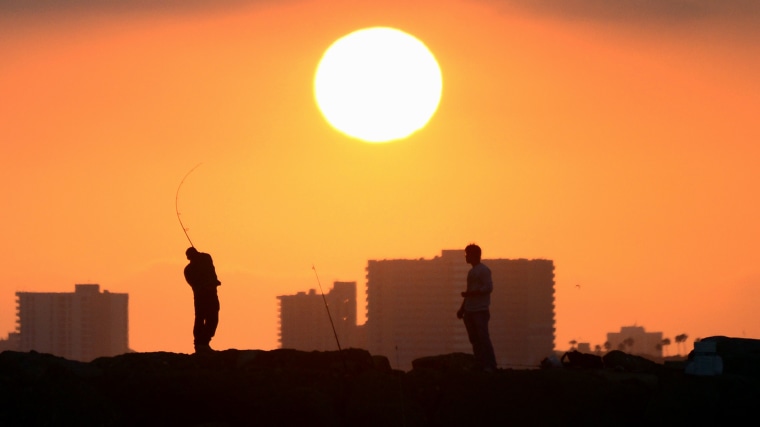Deniers of global warming have a new hero: Valentina Zharkova, a professor at Northumbria University in England. Her research seems to suggest a looming “ice age,” which is making your conspiracy-minded uncle cartwheel with glee. But hold on a minute, is the research legit climate science? Not even close.
The news—which has been trending on Facebook, parading through Twitter, and blanketing media from American Thinker to Radio New Zealand—was based on a modest presentation last week at the Royal Astronomical Society’s annual meeting in Wales.
Zharkova studies the sun, and the conference pulsed with talk of our star’s declining solar activity. Using a new technique, she calculated that these declines would accelerate in 2030, leading to a “solar minimum” not seen since the so-called Little Ice Age of the 1700s.
She may be right about the sun. But it’s a leap into the hot white abyss to claim that her predicted decline in sunspots could reverse or even significantly slow global warming, according to virtually every climate researcher on earth.
The two fields are almost totally distinct, because unless our closest star actually blinks out or dims like an Edison bulb, the best research finds that the effects of greenhouse gas emissions will far outweigh natural changes in the sun.
A 2010 study in the journal Geophysical Letters, for example, found that a “solar minimum” could cause a temperature drop of 0.3 degrees Celsius. That’s a small ice cube when compared to the 1.3 degrees of warming already recorded since pre-industrial times, and the 5.0 degrees of warming already predicted by 2100, if we don’t stop flooding the atmosphere with carbon dioxide.
Sure, it sounds dramatic when Zharkova claims that the sun’s output could shift by 60%. But her claim relates only to the sun’s magnetic activity, not its ability to give off heat or light. Zharkova also never actually warned of a “mini ice age.” Her research simply stirs up an existing pool of denial: the idea that global warming can be explained by the sun.
It hasn’t helped that Zharkova is one of the few scientists who is openly skeptical of existing climate research. She hasn’t actually read much of it, she admitted to the Washington Post, but she isn’t impressed by what she’s seen: “I am not convinced with the arguments of the group promoting global warming of an anthropomorphic nature.”
She thinks the sun’s effects are larger than our own, and under-appreciated by science, and that’s totally fine. It will be interesting to see what she comes up with. In the meantime, though, if your conspiracy-minded, cart-wheeling uncle isn’t convinced, you might point him toward one simple fact:
That Little Ice Age of the 1700s? It was real. No one denies that fact. But it had less to do with the sun than with a cloud cover from volcanic eruptions, according to recent research. Also: it only hit Europe. Climate change, by contrast, is global—and still all too real.
